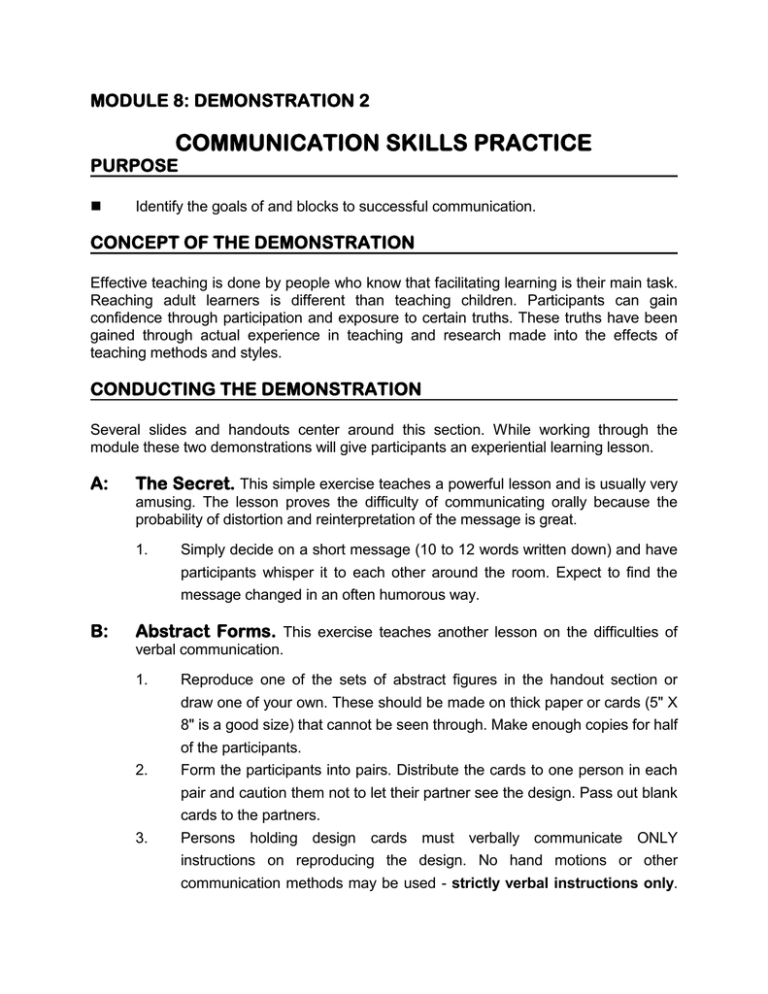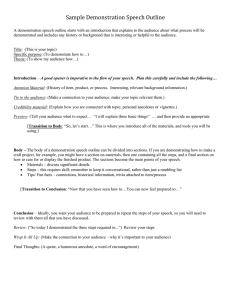Communication Skills Practice Module: Activities & Goals
advertisement

MODULE 8: DEMONSTRATION 2 COMMUNICATION SKILLS PRACTICE PURPOSE Identify the goals of and blocks to successful communication. CONCEPT OF THE DEMONSTRATION Effective teaching is done by people who know that facilitating learning is their main task. Reaching adult learners is different than teaching children. Participants can gain confidence through participation and exposure to certain truths. These truths have been gained through actual experience in teaching and research made into the effects of teaching methods and styles. CONDUCTING THE DEMONSTRATION Several slides and handouts center around this section. While working through the module these two demonstrations will give participants an experiential learning lesson. A: The Secret. This simple exercise teaches a powerful lesson and is usually very amusing. The lesson proves the difficulty of communicating orally because the probability of distortion and reinterpretation of the message is great. 1. B: Simply decide on a short message (10 to 12 words written down) and have participants whisper it to each other around the room. Expect to find the message changed in an often humorous way. Abstract Forms. This exercise teaches another lesson on the difficulties of verbal communication. 1. 2. 3. Reproduce one of the sets of abstract figures in the handout section or draw one of your own. These should be made on thick paper or cards (5" X 8" is a good size) that cannot be seen through. Make enough copies for half of the participants. Form the participants into pairs. Distribute the cards to one person in each pair and caution them not to let their partner see the design. Pass out blank cards to the partners. Persons holding design cards must verbally communicate ONLY instructions on reproducing the design. No hand motions or other communication methods may be used - strictly verbal instructions only. 4. Give each pair 5-10 minutes for giving instructions and drawing. This is quite difficult and some frustration may be expected, although it is also humorous to most people.* Let pairs examine the two cards and discuss the process for 3 or 4 minutes. Then ask for volunteers to report on their experience and what they learned. This process should reveal an increased respect for the challenges of communicating verbally and the need to use more than one method of teaching. Point out the distinct advantages of using all three teaching methods, i.e., Show it, Tell it, Do it. *Some consideration should be given to cultural appropriateness when planning this exercise.
